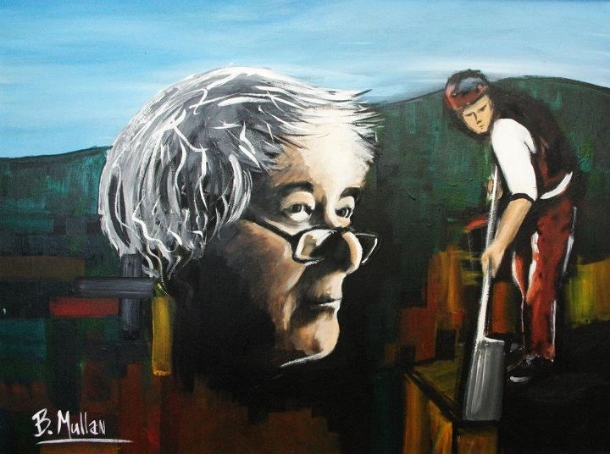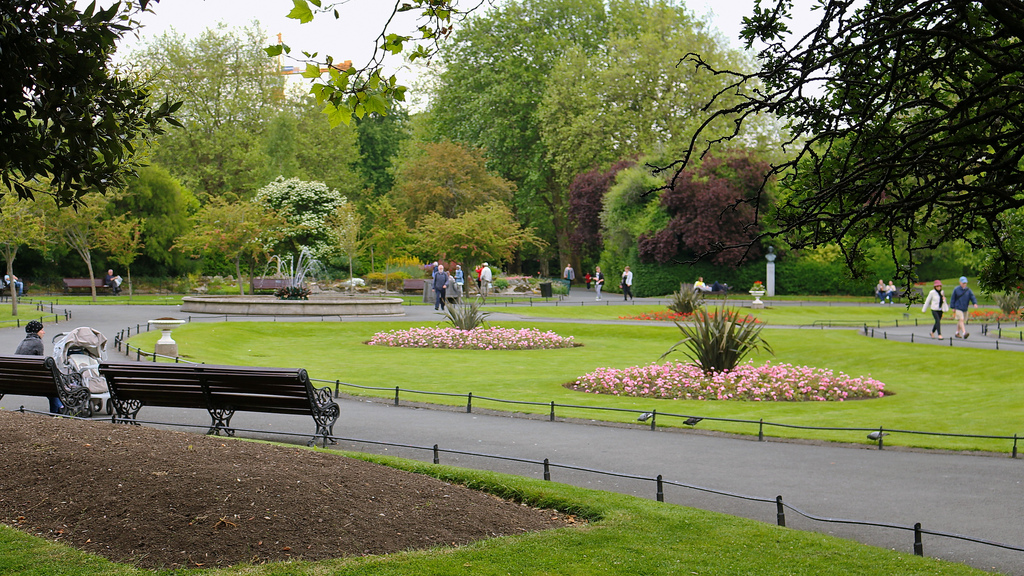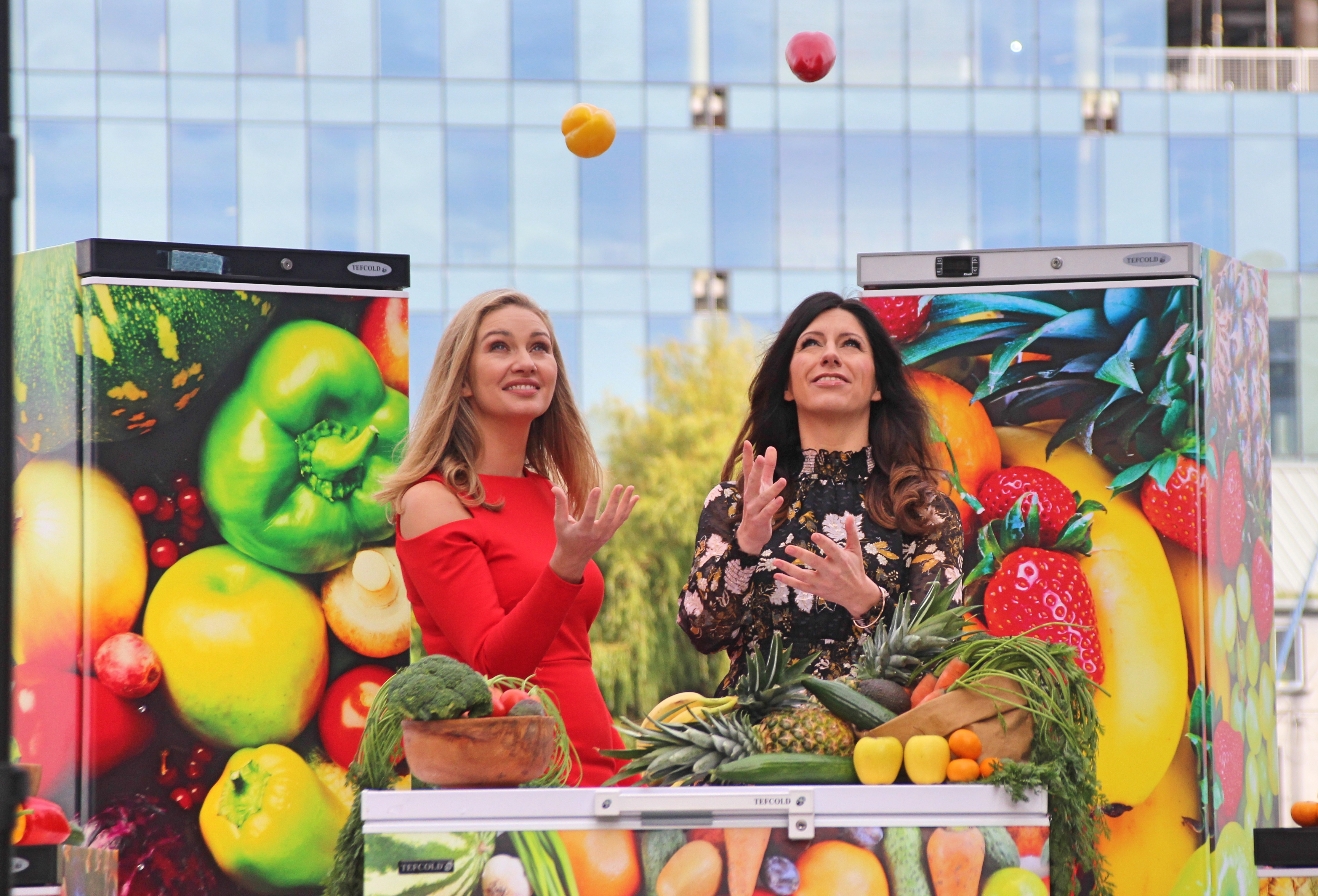Colm O’Regan on Climate Worrier

10 February 2022
Comedian Colm O’Regan will be taking to the stage next week in Dublin’s Smock Alley Theatre for his new show, Climate Worrier.
We rang him up to find out more, have a read below.
This conversation has been edited for length and clarity.
When did climate become an important issue to you?
When I was a child, we were all talking about the hole in the ozone layer, the Amazon rainforest and global warming. I remember that Time magazine issue with “Endangered Earth” and Captain Planet – and I don’t know if this was a common experience – it sort of went away. And it didn’t go away, but I felt like somehow I got on with my life, and then it came back. I feel a bit guilty about the fact I wasn’t really following it in the years between early teenage years and being all grown up.
So I’ve been aware of it for a long time. But I definitely think that bringing my children to the climate strike in Dublin in September 2019 made me see that there’s a lot to be done here. There was this sense that young people were leading on this and us adults were standing around and looking at each other and saying to ourselves, “what are we doing?”
There’s this tendency to say the kids will be alright and the future is safe, but that’s a cop-out. I’m 40-something, not 84.
There’s been lots of crystallizing moments, but that was a really important one.
Then looking at when Greta Thunberg first came to prominence and going online seeing people hurling abuse at her – they all seemed to be the same age as me. Seeing people like me hurl abuse at a 17 year-old girl who’s just pointing out what’s already obvious made me think, “wait a second, is that the best my cohort can come up with? Have I anything to offer?”
When I saw that this show was happening, I was really intrigued because I was wondering how comedy can address this issue. How did the idea come to you and what’s the premise?
So in a general sense, comedy about a serious issue is not minimizing the serious issue or minimizing the bad things that have happened to people because of it.
For me, comedy is a way of talking about it. It’s talking about our reactions to the serious issue, it’s about making it personal, talking about my own feelings of exasperation. So there’s the laughter of recognition.
It’s not the only method of talking about this, but I do know there’s literally only so much bad news you can take without release and relief and some sort of valve.
Some people are absolute carbon sinks for their ability to absorb bad news, but I know there needs to be gallows humour about this so at least there can be some sort of release of tension and then go, “but what do we do?”
But what it does do is bring people together – and the challenge is to be aware that people need punchline and release. You need a punchline that doesn’t punch down or make light of how people are feeling, but it makes light of hypocrisy or makes light of me – and that gives people release.
I also do feel when people are laughing, they will remember some of the things you say. So that’s kind of the role and my contribution.
There’s this Venn diagram that Ayana Elizabeth Johnson shares all the time: what brings you joy, what are you good at and the work that needs doing – where that all overlaps is what you can contribute. It’s a combination of ego, awareness that I’m not much good at other things – but communicating, talking to people, being nosey, eavesdropping, making people laugh – those are things I’m good at.
If I keep going with this, what I should do is make people laugh while talking about this. I’m not pure and I’m a hypocrite, and it’s that learning to be okay with hypocrisy. I’m neck-deep in this system, but what I do know how to do is sometimes make people laugh and hitch a joke to an idea that people might think about. So that’s what I’m trying to do and I have to make it clear – I am a big hypocrite, and that doesn’t mean I should do nothing.
This show isn’t definitive, it’s part of the tapestry of ways of looking at this. It’s a tiny corner that I want to contribute to the information pile.
Now that you’ve been working on your contribution to the information pile and having it go on stage next week, how do you feel yourself having gone through this process?
COR: it’s definitely helped me come to some little tiny truths that will help me. When faced with the sheer wall of one’s own hypocrisy, it’s taught me to just be okay with that and stand over the fact that I’m trying to do this, but that yes I am part of the society that I’m trying to help.
So it definitely has helped me kind of be okay with the presence of that hypocrisy and then trying to chip away at it.
I’ve also found that there are very few people who are completely terrible as I’ve become more engaged in this issue. There are people who have different views to you, and you find that then they’re doing something else that is also good. There are very few people who are just objectively terrible.
One thing I’ve also tried to do on social media is find out more about people’s jobs and roles. Everyone’s got a job, and their job impacts the environment to a greater or lesser extent. But most people are in a job because they like doing it, or it’s for money or location or whatever – so find out about it.
I’ve also learned that if you take a step in the right direction, follow up is so important. You have to make that second dreaded album, so to speak. Because if you do a thing and abandon it, like a litter picking group that’s planted a few trees, if you walk away it’d be worse than if you’d never started it because then people will see this and think, “oh they tried that, and we never heard anything else from them”. You have to do a thing and even if that second album is terrible, make it, and then make the third album. Remember you are doing things for their own sake but also trying to engage bystanders. Because I was a bystander once. These are little truths that I’m trying. I don’t even know if they’re right or not, but they keep me going.
And then make the third album. These are little truths that I’m trying – I don’t even know if they’re right or not, but they keep me going.
People who live this stuff are exhausted. People who are feeling their way – we have a duty to share some of the concern, to give other people a break.
Making tea for the rescuers is what I’m trying to do here. I don’t have the technical skills (yet, who knows i might acquire some), I don’t know how to make solar panels, I don’t know how to rewet the bogs, but I’ll metaphorically speaking make tea for the rescuers.
At the very least people who are just absolutely swamped with working on this shouldn’t have to make their own tea. That’s the sort of thing I think we could help with.
Climate Worrier will be on in the Smock Alley Theatre on 16 & 17 February at 9pm. Tickets are available here.
[x_author title=”About the Author”]







